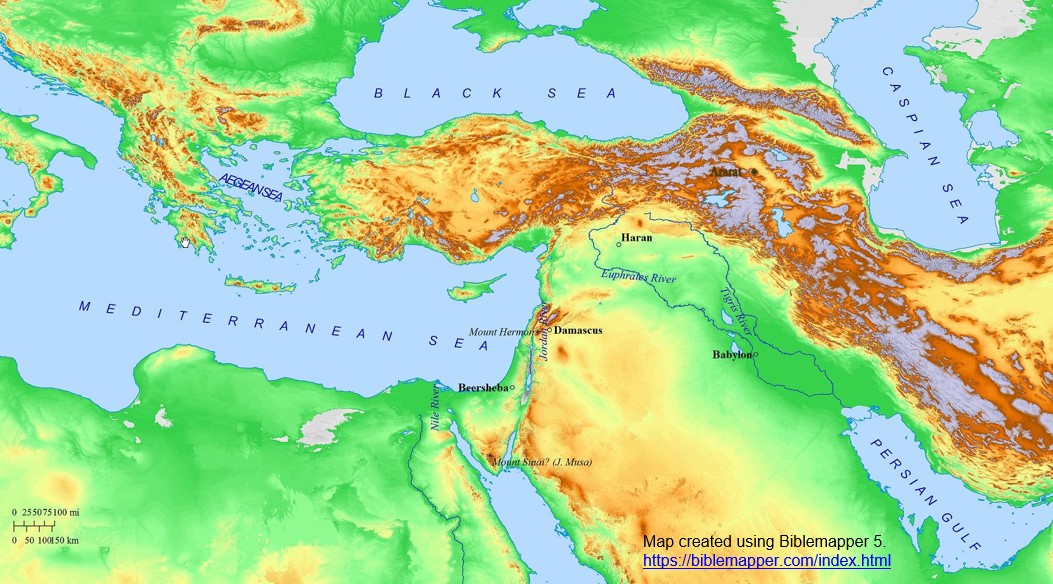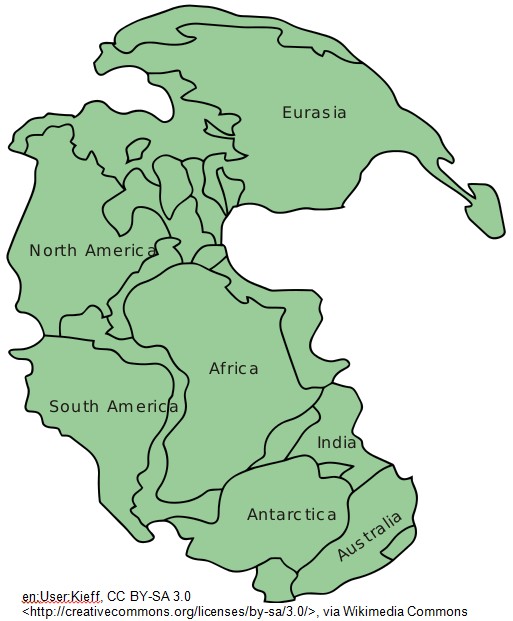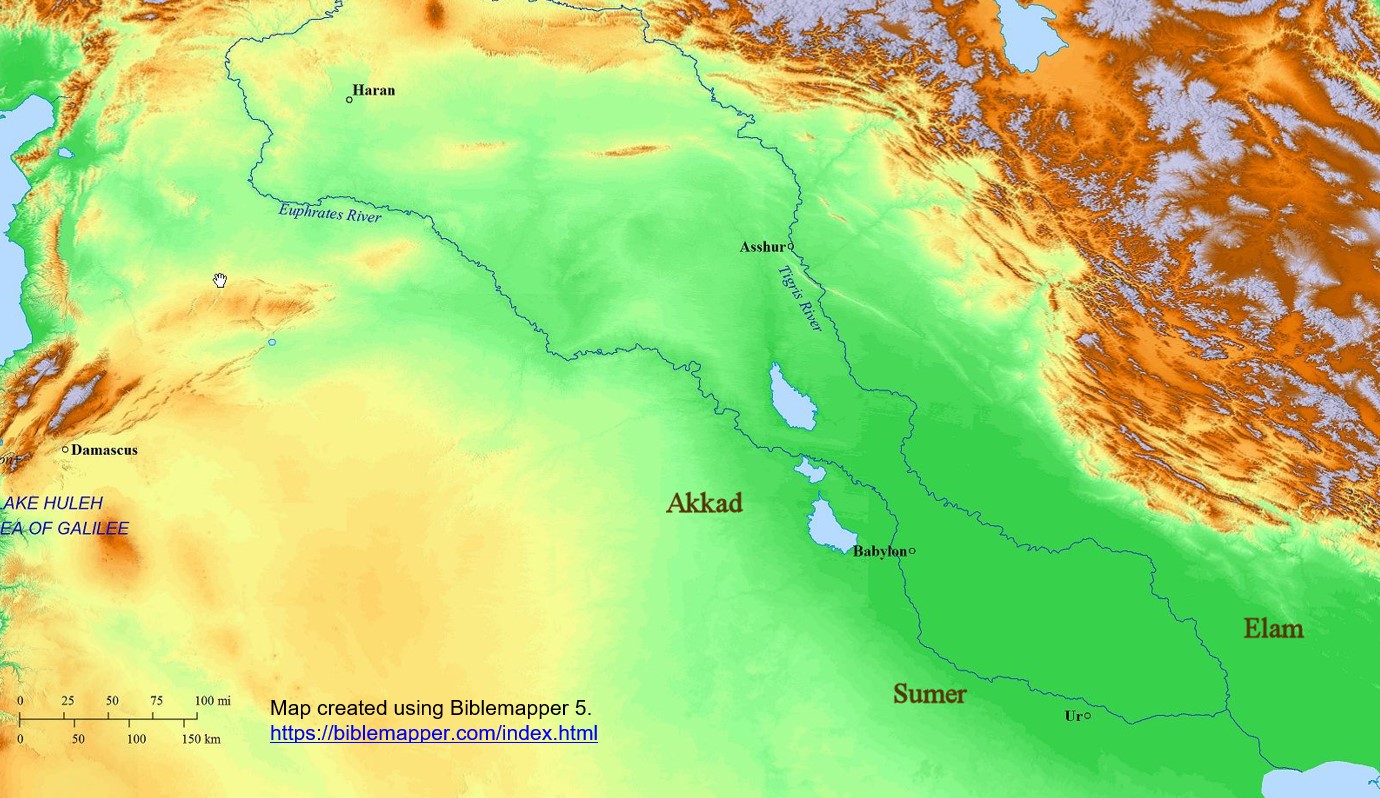Recap:
So far we have looked at the account of creation, Adam and Eve, Adam’s family tree, the reason for the Flood, Noah, the flood, God’s covenant and the blessing and cursing of Noah’s sons.
Now we are about to read Genesis 10. ‘Oh no! All those names! I am bound to get the pronunciation wrong’!
Don’t worry. Spoken Hebrew was lost as a language following the Babylonian exile and was only revived in the last hundred or so years. So no-one can be absolutely sure if one pronunciation is ‘right’ or not. I suggest that you carefully look at the spelling, try a few different pronunciations, settle on one you are comfortable with, and go for it. (There will always be others who will ‘help’ you if they think you are wrong!)
But it is important not to shy away from the names themselves, or from passages in the Bible that seem to contain too many. They are there for a reason and it’s our job to find out what that is.
Before we look at our passage, we need to think about some of the names we will encounter:
Amalekites, Ammonites, Arameans . . . to start from the beginning. Or how about Moab - is Moab the name of a person? Or a people? Or a place? And where is it? And is it important anyway?
The simple answer is that a prominent person will give his name to his family, then his tribe. The area where his tribe settles will be referred to by that name. Villages, towns, cities, even countries will simply follow that pattern. In a world where nothing has a name, these family names are all they have! Until, of course, someone stronger takes over and the town or country is renamed.
Another problem is that Historians and Geographers love to use different names interchangeably, seemingly to deliberately confuse us. I’ll probably do the same but I’ll try to explain as I go along and point it out on the map.
Actually this using different names for the same country annoyed me until I realised that the country that the Polish call Niemcy, and the French call Allemagne, and which I call Germany, is actually Deutschland – so I realise I can’t really complain.
We are about to embark on a brief biblical history and geography of the world. We have seen that there is no point in going back before Noah as only he and his family survived the flood, and the geography of the world was dramatically altered too. If all the sedimentary rocks were laid down as a result of the scouring action of the Flood, the existing features of the Old World would have been erased.
Read Genesis 10:1-32
The first clue we find for our geography lesson is in Genesis 8:3-5
3 The water receded steadily from the earth. At the end of the hundred and fifty days the water had gone down, 4 and on the seventeenth day of the seventh month the ark came to rest on the mountains of Ararat. 5 The waters continued to recede until the tenth month, and on the first day of the tenth month the tops of the mountains became visible.
 Map002 Mt Ararat
Map002 Mt Ararat
That’s where Noah and his family started so that’s where we will start. What was the mountain? Ararat
No, sorry – it’s actually Buyukagri Dagi or Aghri gadh, or Koh I Noh but I shall still call it Ararat. It’s right in the furthest Eastern end of Turkey near the borders of Armenia, Azerbaijan and Iran. (Point to map)
Remember that this is a map of part of the world as it is today. It would have been dramatically different immediately after the flood.
The Continents had actually moved around a lot, but after the flood they formed a single land mass – Pangea. This too broke up to give us our current continents, and they are still moving - but much slower now.
Pangea (Map001)

Now let’s go back in time. Historians and Geographers like to refer to the area containing modern-day Turkey, as Anatolia. And the parts of Iraq we are interested in are generally referred to as Mesopotamia. But before all this, before anywhere had been discovered and named, we must follow Noah and his family.
OK – here they are, perched up a mountain. Near tributaries of the mighty Tigris and Euphrates Rivers. They come out of the Ark, let the animals go, what are they most likely to do next?
(Find somewhere to live – warmth, shelter, drinking water, grass or wild cereals, somewhere to plant crops etc )
To find these they would have had to come down out of the highest point of the mountain (which today is 5000 meters or 15,000 feet). And they would probably have naturally chosen the south side, towards the sun. At 6000 feet there is a fertile plateau, currently producing wheat and barley, and grape vines are indigenous. But actually it seems that they followed the mountain streams and continued down the Tigris or Euphrates seeking more fertile land (and warmer temperatures!).
How long did the family stay together before the sons moved away? We don’t know. If the family stayed together until Noah died we’re looking at 350 years (Genesis 9 v 28) We know the sons stayed at least long enough to have children and for Noah to plant a vineyard and drink the results.
Now we need to take a diversion into chapter 11.
Although Genesis 11:1 follows 10:32, it does not tell us when the events of chapter 11 actually took place. In Genesis 11:2 we read that Noah and his descendants had generally migrated in a south-easterly direction until they finally settled in the plateau area called Shinar between the two rivers where Babylon was eventually built.
Only after chapter 11 would people begin to move out into the rest of the world. Now read Genesis 11:1-9
1 Now the whole world had one language and a common speech. How long had that language been in existence? (Since Adam & Eve were given language by God?)
2 As people moved eastward they found a plain in Shinar and settled there.
Shinar was the old name for Babylonia – the plain stretching from Babylon to the coast at Ur, between Akkad, Sumer and Elam (Map003). This is an Enlargement taken from Map002 and shows the area in more detail.
 Map003 Babylon
Map003 Babylon
3 They said to each other, ‘Come, let’s make bricks and bake them thoroughly.’ They used brick instead of stone, and bitumen for mortar. 4 Then they said, ‘Come, let us build ourselves a city, with a tower that reaches to the heavens, so that we may make a name for ourselves; otherwise we will be scattered over the face of the whole earth.’
(There was no easily available stone for building, or limestone to make cement).
(You might like to write some key words from the next answers on a board.)
What need do you think prompted the desire in verse 4? Why did they want to
‘build ourselves a city’? A need for security, permanence, aggrandisement
‘with a tower that reaches to the heavens’? Independence. Or to demonstrate to God how clever they were: Genesis 3:4 you will be like God. Or a practical purpose – to help you find your way home, or a flood protection – built on a flood plain between two major rivers.
‘make a name for ourselves’? Desire for power, glory, superiority.
‘otherwise we will be scattered’? A desire to stay together (Actually directly opposed to God’s instructions to ‘fill the earth’ Genesis 1:28). But also probably a desire to control, to rule.
Who do you think ‘they’ were:4 Then they said ? Chiefs? Family heads? Rulers?
Why did this draw God’s attention (v5) and cause him to take action (v7)?
Pride, and a demonstration of all they could do without God’s help.
The people were so proud of their city and tower; so immense – a demonstration of their great power and skill. Verse 5: But the Lord came down to see the city and the tower the people were building.
God never acts thoughtlessly, he saw for himself what the people were up to and rather than destroying the tower, went straight for the root of the problem.
Man had found that by working together they could achieve much more than if they worked alone. But this also meant that they thought they could do without their creator.
6 The Lord said, ‘If as one people speaking the same language they have begun to do this, then nothing they plan to do will be impossible for them. 7 Come, let us go down and confuse their language so they will not understand each other.’
8 So the Lord scattered them from there over all the earth, and they stopped building the city. 9 That is why it was called Babel – because there the Lord confused the language of the whole world. From there the Lord scattered them over the face of the whole earth.
Where language originated is still considered by scientists to be an insoluble problem. Where totally different languages came from is an even bigger problem.
What was the effect of a family group finding that they now spoke a totally different language to their next-door neighbours? (Reminiscent of Acts 2:4-12)
Actually it had a devastating effect on their building plans. It also caused the different groups to now want to distance themselves from the ‘foreigners’ they could no longer understand, and actually start to disperse across the world.
Before we look at chapter 10 in detail, look at verse 25:
Two sons were born to Eber:
One was named Peleg, because in his time the earth was divided; his brother was named Joktan.
What does the phrase ‘the earth was divided’ mean?
Was it (as the NLT has it) when languages divided people? Or did it refer to the time when Pangea broke up into the separate continental plates? Or both?
Long-age scientists require millions of years for these events to occur, but a major, sudden break-up of what would become the continental shelves is quite within Creator God’s powers.






